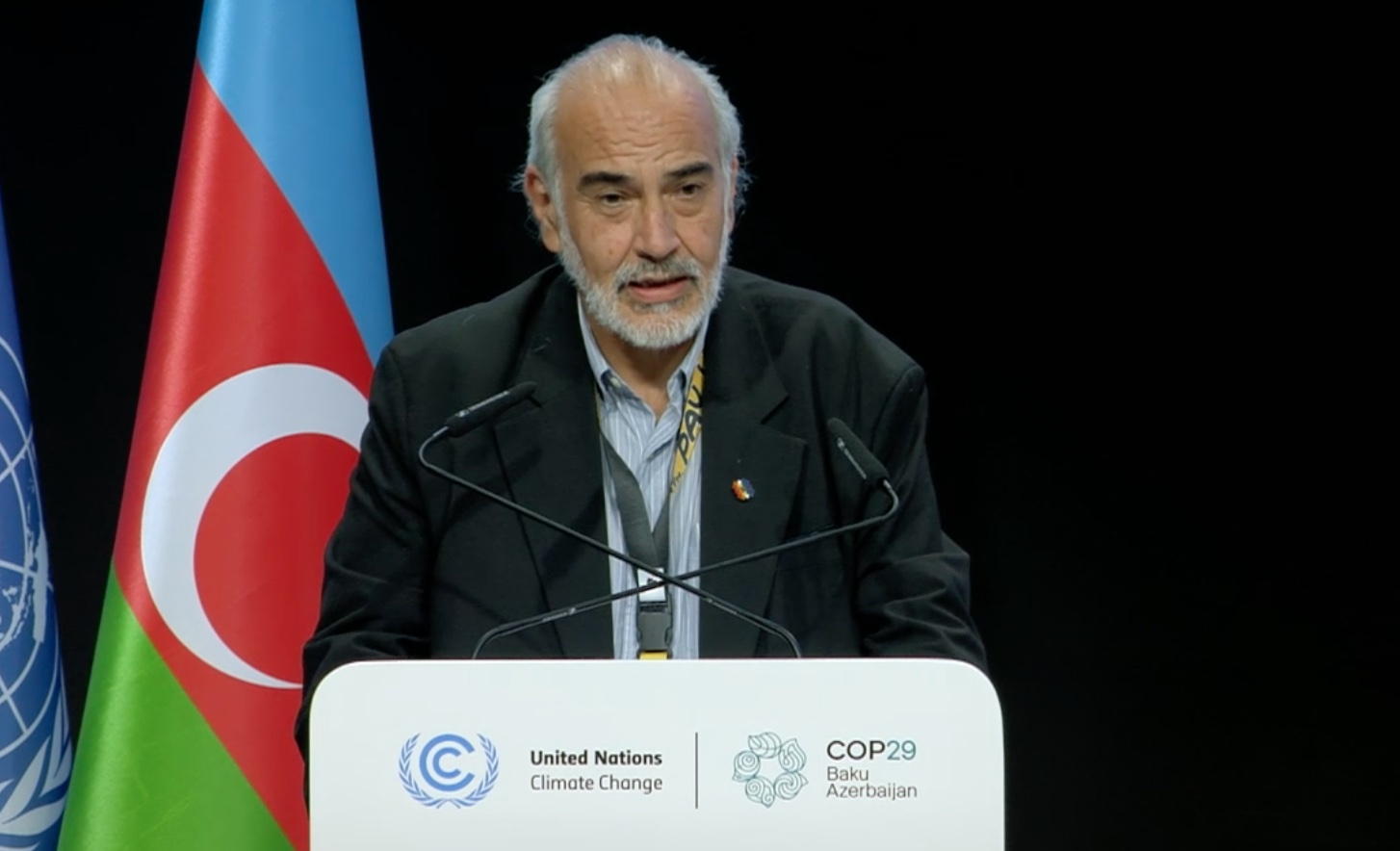BAKU, Azerbaijan, November 19. The reason this decade has become critical is primarily due to the inadequate actions and unmet promises from developed countries, said Diego Pacheco Balanza, Director General of Living Well and Foreign Policy of Bolivia in his national address at the COP29 summit in Baku, Trend reports.
Balanza highlighted that the consequences of climate change are becoming catastrophic for developing countries, as they bear the brunt of the historical carbon emissions caused by developed nations.
According to him, the countries that are the largest contributors to global emissions are failing to meet their commitments to reduce carbon dioxide levels. Instead of cutting their emissions, they are, in fact, on track to increase them by 2030. This is a serious issue, as these nations were expected to take primary responsibility for emission reductions under the Paris Agreement.
"Developed countries have not only fallen short of increasing their ambition to reduce emissions, but they have also failed to honor their commitments to provide financial support to developing nations. I am deeply concerned that, instead of offering grants that would provide real assistance, climate finance is primarily being delivered as loans, which only exacerbates macroeconomic instability in developing countries," he said.
The Bolivian representative also emphasized the need for clear and transparent criteria to track and account for climate finance to ensure effective monitoring and implementation of climate goals.
Furthermore, he cast doubt on the private sector's ability to address climate challenges, noting that despite claims that private investors would solve the climate crisis, only a third of the funding for climate adaptation comes from private investors. This raises serious doubts about the private sector’s ability to provide the necessary financial flows to address the climate issues faced by developing nations.
To note, the 29th session of the Conference of the Parties to the UN Framework Convention on Climate Change (COP29), which will run until November 22, opened at the Baku Olympic Stadium on November 11. It is the largest event organized by Azerbaijan to date, and the first time in the region that it is being held in Azerbaijan.
Within COP29, the highest level event - the summit of world leaders on climate action – was held on November 12–13.
The main expectation from COP29 is to agree on a fair and ambitious New Collective Quantitative Goal (NCQG) on climate finance. The COP29 Presidency has launched 14 initiatives that include linkages between climate action and the Sustainable Development Goals, including green energy corridors, green energy storage, harmony for climate resilience, clean hydrogen, methane reduction in organic waste, action on green digital technologies, and other topics.
In addition to being a top priority that creates the conditions for action, creating climate finance will also help fulfill the 1.5°C pledge by bringing everyone together.
The UN Framework Convention on Climate Change is an agreement signed at the Rio Earth Summit in June 1992 to prevent dangerous human interference in the climate system. The acronym COP (Conference of Parties) stands for “Conference of Parties” and is the highest legislative body overseeing the implementation of the Framework Convention on Climate Change.
A total of 198 countries are parties to the Convention. Unless otherwise decided by the parties, COP is held annually. The first COP event was held in March 1995 in Berlin, and its secretariat is located in Bonn.
Stay up-to-date with more news on Trend News Agency's WhatsApp channel







